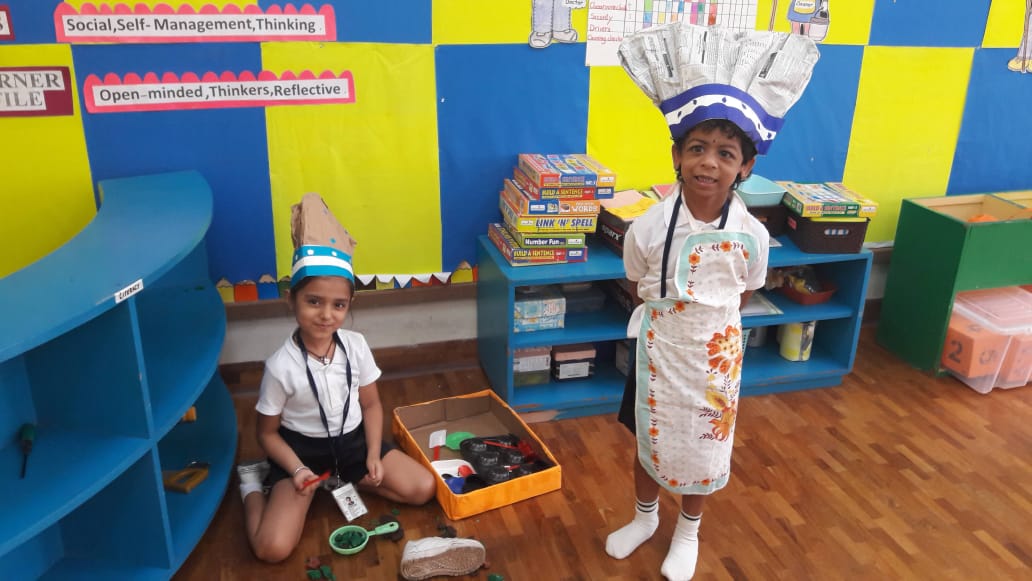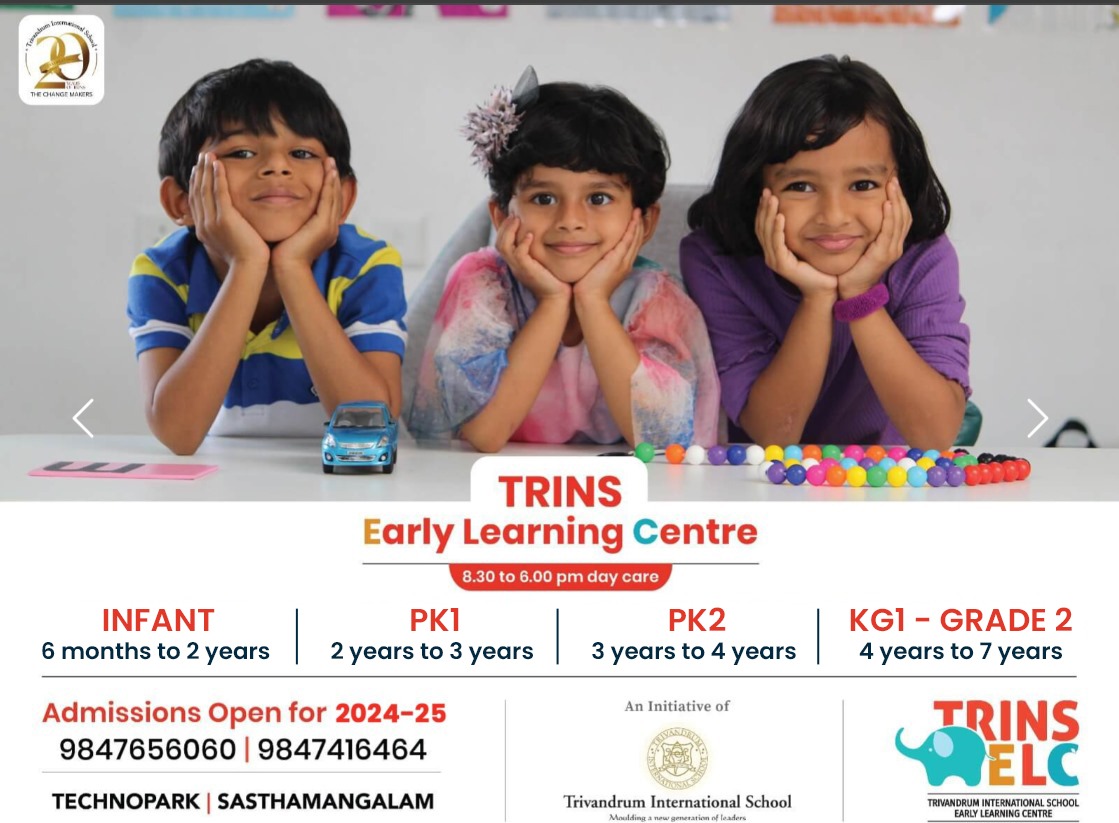


Preparing Students for Tomorrow

“If we teach today’s students as we taught yesterday’s, we rob them of tomorrow.” John Dewey
Alternatives to Traditional Education
Today, thanks to umpteen technological innovations, education is witnessing a sea change. Curriculum planning and delivery have taken broad strides in tandem with the latest developments in the field of education. Education has surpassed geographical boundaries; hence international awareness, particularly in a global economy, has become a very important 21st-century necessity. And now, more than ever, it is important to understand and respect different perspectives and ideas. With complex problems challenging nations today, the modern world needs more harbingers of peace. In this changing scenario, children should not be left behind. They must be exposed to multiple cultures through an international education system right from their Early Years. It is with this worldview that Trivandrum International School Early Years Curriculum is crafted to provide the best enriching school experiences to students in the age group of 2 years to 6 years. Keeping a global perspective and by providing infrastructure and resources that match the best across the world, children are guided to move with the times. With the core motto “Learning is for Life”, holistic education is the primary vision of the school with the lens on instilling confidence, developing critical thinking, and helping students believe in themselves.
Language Fundamentals
Today, learning and teaching are no longer restricted to the use of prescribed textbooks and outdated models of the teacher-directed passage of information. With data available at the fingertips, the “process” of education takes priority over the “product”.
TheTRINS Kindergarten Curriculum is designed in house by researching, reflecting, and adopting the best practices from international curricula. The main aim while developing the curriculum is to provide multi-pronged approaches and connecting concepts to real-life situations thus making education relatable. Language is a powerful tool to express one’s thoughts, ideas, and feelings. Improper and outdated language teaching methodologies affect fluency and clarity of speech that cause frustration in children, which in turn impedes growth in higher classes. Therefore, English language development is key to the curriculum and begins right from the first year of kindergarten. A systematic, sequential phonics program is scientifically designed to teach letter sounds in multisensory, enjoyable ways thus helping kindergarteners read and write words easily. It enables children to be confident and independent readers from a very early age. Unlike learning words by memory, phonics teaches strategies that can be used to read almost any word- a skill that stays with children throughout their life and provides a stepping stone to their future reading interests.
Mathematics for Fun
Many term Mathematics as an abstract problem! Traditionally numbers are taught to be recognized and remembered. However, our kindergarten students are taught to associate quantity with numbers by planning engagements that incorporate numbers into daily tasks and to make connections with their immediate environment. Rhymes, stories, and jingles effectively introduce students to numbers and problem-solving skills thus preparing the foundation for lifelong learning. Buying, selling, measuring, counting while children sing, play, eat, or cook is all activities incorporated into the daily schedule. Art, music, dance, and physical education are all viewed as areas where Mathematics can be integrated for a more holistic learning experience. When children match numbers with beats, art, and craft or count dribbles of the ball on the sports ground, they look at numbers from a different perspective.
Science and social studies also follow the philosophy of “Play, Do, Learn and Grow” and ample avenues are offered to children to go on field trips, conduct on-site experiments and learn by predicting, doing, and finding out.
Opening New Vistas to Explore Innate Talents
Every child is unique and special. Not all children would like to spend time browsing through books in the library or spending time in the school laboratory conducting experiments. While some children thrive best in an atmosphere filled with music and dance, others may want to create, draw, or paint. Some excel on the sports field and track events while others make a mark in specialized sports. Subjects like art, music, and dance elevate the mind, strengthen critical thinking skills in kids, develop visual-spatial awareness, and make learning joyful. Sports teach students how to follow instructions, work in a team, and also to understand the joy of participation over winning the game. In fact, research shows students who actively participate in extracurricular activities show higher grades and test scores, more regularity in class, and higher self-confidence and discipline. Out-of-school activities continue to seamlessly follow classroom concepts viz. increasing awareness, self-management, and leadership skills. It increases focus and attention abilities thus creating the ground for students to play key roles in a global field as adults.
Motivating Students with One to One Attention
Each child is unique and in an endeavor to celebrate this individuality of the students, TRINS teachers adopt personalized learning engagements. These experiences are scientifically planned by collaborating with the best minds and imbibing the best practices in the field of kindergarten education from across the world. Every child is allowed to move at his/her own pace within the classroom spaces. The Special Education Department team focuses on identifying challenges, if any, in students and designs an inclusive plan to address areas that need attention. Opportunities are also created for above-average achievers to move forward to higher concepts and strengthen their abilities and interests further. These individualized education plans are possible due to the low teacher-student ratio ie.1:3 in the kindergarten classes. This allows the teacher the privilege of observing each child minutely, assessing his/her strengths and challenges, and focusing on drawing out the best from them. In a nutshell, the Trivandrum International School’s kindergarten curriculum is designed for the future in more ways than one!
Every student deserves to be the best version of himself/ herself and this is only possible with the care, love, attention, nourishing, and nurturing that is provided in the early years of a child’s growth. While selecting a school for your child, keep the growing global context in view. It is a decision you will not regret!
« Why Invest in Your Child’s Early Years || Social And Emotional Learning And Educational Equity In Primary Education. »





